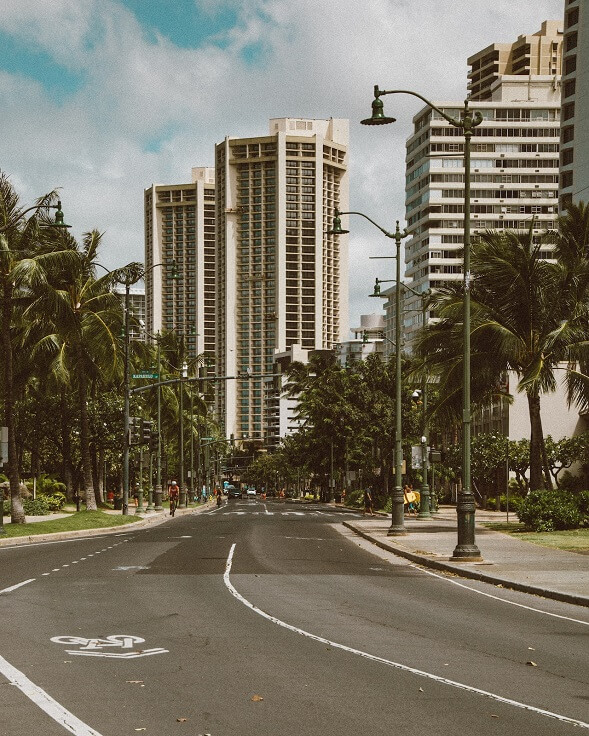Are you contemplating whether to retire in Hawaii? Hawaii is among the favorite tourist destinations and vacation spots for many reasons, such as its climate and rare and area-specific snowfall. But when it comes to spending the retirement years in the state, there are several pros and cons to keep in mind.
So why should or shouldn’t you retire in Hawaii? As a retiree, you will enjoy access to quality healthcare, tax advantages, a safer neighborhood, a less stressful, healthier lifestyle, and more. But you have to consider the cost of living, number of hospitals, and other cons to retiring in Hawaii.
To help you decide better if Hawaii is for you or your loved one who is about to retire and wants to move, let’s talk about the highly recognized pros and cons in more detail. This way, you can evaluate if the pros outweigh the cons or vice versa, based on your current situation, expected retirement benefits, and specific plans to spend your retirement years.

What Are the Benefits of Retiring in Hawaii?
Retiring to Hawaii has several advantages, but what most retirees always brag about are the following:
Mild Climate and Weather
Let’s start our list with what Hawaii is most famous for–climate and weather. If you want to escape the harsh, cold (sometimes icy) winter, Hawaii is the perfect state for your retirement.
Yes, winter means rain in the state, but rainfall is usually localized; some areas experience rain, while others have clear skies. It means you can always escape the rain when planning to spend your weekends outdoors. If that’s not enough, severe storms aren’t common in the state.
For the rest of the year, throughout the Hawaii islands, the climate is almost always warm with moderate humidity and persistent northeasterly winds.
Access to Quality Healthcare
Whether we’re in our prime years or senior years, we surely want to be provided with the best healthcare services. The good news is Hawaii never fails to rank high in healthcare quality!
You will also love that the state ranks high when it comes to healthcare costs, especially if you have insurance coverage (usnews.com – Health Care Access).
Low Crime Rate
Besides having access to quality healthcare services, no one can argue when I say that your safety is among the top considerations you look into when you decide to move and retire in a place.
Not only will a safe home, neighborhood, and community give you peace of mind, but also peace of mind for our loved ones living in a different state. You also don’t have to worry about your loved ones, especially your grandchildren, when they decide to visit you.
While we can’t deny that the number of crimes committed in every state (even every country) is increasing yearly, Hawaii still ranks high in public safety (usnews.com – Public Safety). That is in both violent and property crime.
Less Stressful, Laid-Back Living
Most, if not all of us, have spent most years of our lives working and trying to catch up with life, especially now that everything is fast-paced. And Hawaii is one of the best states to escape to once you decide to or when it’s time to slow down.
Why not, you may ask? Hawaii is surrounded by Mother Nature’s beautiful gifts that most of us unintentionally ignore because of how busy we are. The beautiful scenery that welcomes your eyes, no matter where you are, will help you relax.
The nurturing or caring ambiance in the State of Hawaii even makes life less stressful in Hawaii than in most states. You’ll find that establishments like restaurants and malls are always set up in a family-friendly way.
Add all these to the fact that Hawaii is one of the safest states in the country, and you surely can enjoy your retirement years!
Healthier Lifestyle
In relation to the last benefit, retiring in Hawaii will be good for your mental health.
Did you know that just staying outdoors and being close to nature can help relieve your stress? And in Hawaii, staying outdoors won’t be too challenging, thanks to its mountain ranges, beaches, plantations, animal farms, and more.
Not only that, but you can stay active in Hawaii throughout your retirement years, which is good for your physical health. You can choose from simple to complex activities, like hiking, walking, nature tripping, swimming, and surfing, depending on how fit you are and active your lifestyle was before you retired.
Do you love arts and music? Go ahead and attend arts and music festivals and small events. Hawaii is even filled with historical and cultural sites, museums, and galleries that you can visit.
Eating healthy food won’t be a problem when choosing Hawaii for retirement. Traditional Hawaiian cuisine is made from the healthiest and freshest ingredients and healthy cooking methods. Also, thanks to the state’s tropical climate, you can enjoy fresh, healthy fruits anytime and anywhere you want to.
With all these combined, it’s no wonder The Aloha State always makes it to the list of the healthiest states in the country. In fact, residents of Hawaii are among those who have the longest life expectancy, specifically 10 to 20 years longer than most Americans.
Tax Advantages on Pension
Some of you will solely rely on your pensions to support your needs and wants throughout your retirement years, while others will depend on your pensions for most of your monthly expenses. So, you’ll love to hear this: your Federal pensions, Social Security, and public pension incomes, won’t get taxed in Hawaii.
Needless to say, you will have additional money to spend compared to retiring in a state that taxes these types of income.
Highly Diverse Population
If you love to learn more about different cultures and traditions, you’ll be happy to know that Hawaii is among the most diverse states when it comes to race and ethnicity. You’ll get to make friends or chitchat with people of different backgrounds.
It also means you’ll get to try several types of cuisine. This availability of multicultural cuisine will ensure you get to satisfy your food cravings anytime to want.
What Are the Downsides of Retiring in Hawaii?

No one state is perfect; living in an area will always have drawbacks. With that said, here are some of the considerations for you to make a note of before you decide to spend your retirement years in Hawaii:
High Cost of Living
One of the reasons many refuse to move to and retire in Hawaii is the overall cost of living, which is 84% higher than the national average. This high number is because of the high cost of housing, groceries, utilities, and transportation.
Also, healthcare cost is costly if you have no insurance. Although the high cost of healthcare is compensated by the top-quality services you will receive, from dental and private clinic visits to hospitals.
Low Number of Hospitals
Speaking of high healthcare costs, one of the main reasons for it is the low number of hospitals throughout the state.
Most of the time, residents requiring emergency healthcare services need to be transported to another island in the state via helicopter if they live far from a hospital offering the care they need.
Limited Public Transportation
Now, I know that most of you would want to stop driving once you reach your retirement age. Unfortunately, it might not be one thing you will enjoy if you plan to move to Hawaii. There are buses, taxis, and rideshares, but not on all islands in Hawaii.
Moving or retiring to Hawaii areas near public transportation and where most amenities are within walking distance would be a great idea.
If you have a very active lifestyle, a bike would also be a great mode of transportation. You can also consider investing in a senior-friendly tricycle with a basket (View on Amazon) you can use when running errands. Or, it might be time to consider leading an active life by riding a bike. After all, it’s a good cardio exercise!
Low Income
If you plan to get a job even while you’re retired, retirement in Hawaii won’t be the best option unless you’ll only be working to stay productive or busy most of your days. Wages are generally lower in the state; sometimes, they’re not enough to pay a family’s monthly bill.
Plus, Hawaii is a state that usually relies on tourism for its economy to thrive. It means that most jobs available are in customer relations, which are often biased toward the younger population.
But, of course, you can always opt for virtual, remote jobs to help you earn an income. Still, make sure you already have one if your pension won’t be enough to cover your monthly needs.
Taxed Private Pensions
Now, Hawaii is an excellent retirement destination for those receiving federal pensions but not for those receiving private pensions. That’s simply because they’re fully taxed in the state.
The Vog and Bugs
While retirement in Hawaii could be great for those looking for finer weather, Hawaii sometimes experiences the weather event locals call the “vog” or volcanic fog. As its name implies, the vog results from the combination of air moisture, sunlight, and gases produced by the Halema’uma’u Crate.
The vog is not good for everyone’s health, especially when the vog is thick, so you might want to stay indoors. Those leaving their homes should also consider wearing protective gear like a mask.
If you still plan to retire in Hawaii, it’s best to stay away from the Southwestern Region, which is usually the most affected area due to its proximity to the volcano. However, it’s advisable to move to consider another state if you have chronic respiratory problems.
Now, the warm climate and fine weather also equate to bugs. These bugs usually migrate or die during extreme cold conditions, which is uncommon in Hawaii. Thus, you will surely be living with insects throughout the year.
Make sure you keep your home protected by installing window and door screens and keeping your home well-maintained. Having a safe and reliable insect trap or catcher (view on Amazon) and a whisper-quiet bug zapper (view on Amazon) is also a great idea.
Is Hawaii Retirement Friendly: The Verdict

If we’ll consider health and safety, Hawaii is definitely retirement friendly! Those who will receive federal pensions, have health insurance, and have enough savings (even an offline or online business) will also find the state a great place to spend their retirement years. Without a doubt, you can retire in Hawaii to enjoy a simple, slow-paced life.
However, Hawaii won’t be a good choice for you if you will be receiving private pensions unless you also have enough savings or passive income. Those needing constant medical attention, like those with a chronic condition, should also make sure they move to a Hawaii island where they have easy access to a hospital offering the services they require.
Ultimately, it all boils down to your specific retirement budget, needs, and preferences.
